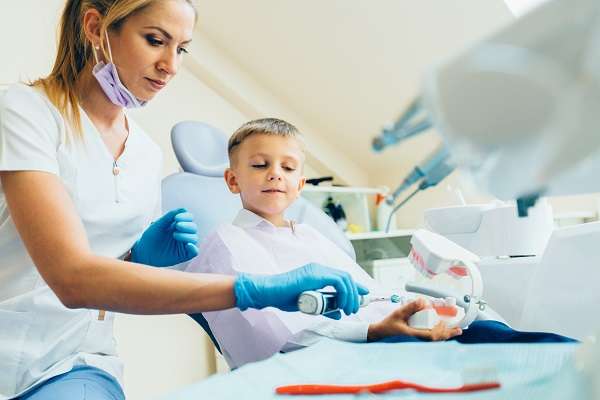Tips for Improving Your Child’s Oral Health

Establishing good oral health habit is essential for your child's health, not just to prevent cavities or dental issues, but for future purposes.
In this article, you will find tips for helping your children improve their oral health.
Tips for children's oral health
The following are vital oral care tips for improving a child's dental health:
Take care of their baby teeth
The baby's first set of teeth play a crucial role in the child's development. First, they are the forerunners and space-retainers for the permanent teeth. Losing baby tooth prematurely may lead to crowding when the permanent teeth start coming in. Also, dental decay could cause pain for the child and affect the adult tooth negatively. If neglected, the infection could spread to other areas.
Supervise children when they are brushing
It is good to allow children to brush their teeth themselves, but parents must continue to monitor them until they reach at least age seven. Kids will probably not know to clean mouth crevices and usually lack the skill to brush correctly. Ideally, they should spend at least two minutes on brushing.
Brushing should be delayed for about thirty minutes to one hour after meals. Parents should help kids with a thorough brushing once they are done.
Get the correct type and size of toothbrush
Kids may not be able to brush properly until they reach a certain age. Parents should avoid giving them a large toothbrush or one with hard bristles that could hurt their gums and make brushing difficult.
Prevent them from rinsing the mouth with water after brushing
Rinsing the mouth immediately after brushing will wash away the fluoride left on the teeth. The American Academy of Pediatric Dentistry suggests that children below two years of age should brush with a smear of fluoride toothpaste, and kids between two and five years can use a pea-sized paste.
Begin flossing early
Cavities form easily in crevices where toothbrush bristles cannot reach. Flossing cleans those areas and reduces the risk of cavities. The earlier parents introduce their children to flossing, the easier it will be for them to cultivate the habit. Kid flossers are available in the store to easily clean the teeth. Parents can make the routine fun by making it a family routine and awarding points for dental hygiene.
Avoid using the dentist as a form of punishment
Parents need to avoid threatening their children with cavities and dental visits. The kids could grow up with dental anxiety and never want to visit the dentist. Kids should be able to see the dentist as a professional who wants to keep them healthy.
A good method would be to reward good oral habits and provide positive reinforcement with special treats.
Final note
Dental experts recommend that parents take their kids on their first dental appointment once they reach one year. The dentist will be able to monitor the child's teething progress and make suggestions on proper teeth eruption. Every child's oral health is vital and should be taken seriously.
Request an appointment here: https://dragonflydentalportcharlotte.com or call Dragonfly Dental of Port Charlotte at (941) 676-9225 for an appointment in our Port Charlotte office.
Check out what others are saying about our services on Google: Read our Google reviews.
Related Posts
A cosmetic dentist offers a range of specialized services, including professional teeth whitening. Teeth whitening by an experienced dental professional often exceeds the effects of over-the-counter products. If you are currently seeking to enhance your smile, it is essential to understand the distinction between professional treatments and over-the-counter options. While each method has its advantages…
A confident smile begins with healthy, aesthetically pleasing teeth. For those experiencing issues such as gaps, chips, or uneven teeth, a cosmetic dentist can provide solutions to restore both appearance and function. Cosmetic dentistry offers a variety of minimally invasive procedures to correct aesthetic concerns and improve your overall oral health.Gaps between teeth, also known…
Cosmetic dentists take pride in enhancing the appearance of their patients' smiles. Since everyone has different treatment goals, finding the right dentist can take some time and research. Asking yourself a few simple questions can help you figure out what you need in a cosmetic dentist, streamlining your search.While all general dentists complete training to…
Aging affects every part of the body, including the look and health of the teeth. A cosmetic dentist can address the common dental challenges that come with aging teeth and gums. As people get older, their teeth may become discolored, worn, chipped, or misaligned. Gums can recede, become sensitive, or show signs of disease. Cosmetic…
